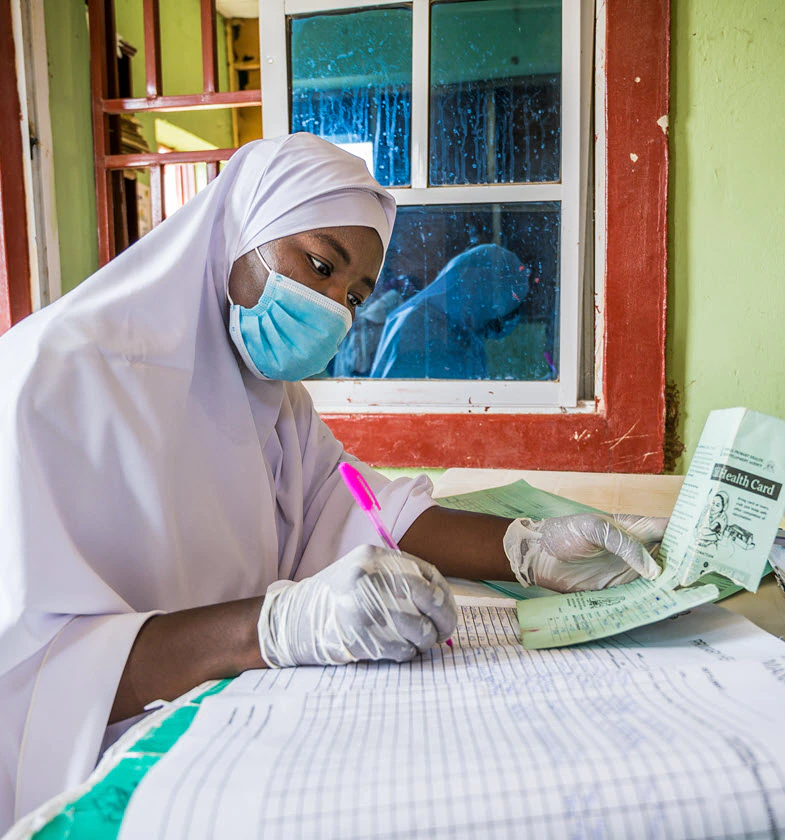At a glance
- Nigeria has made significant progress in reaching its health goals, including recently eradicating wild polio from the country.
- We work with the Nigerian government and other partners to help address a range of health issues, including family planning, nutrition, and strengthening primary health care and public health systems.
- We support efforts to help smallholder farmers in Nigeria increase their yields and reduce food insecurity in the country.
- We also support the government’s efforts to ensure that women, smallholder farmers, and other marginalized populations have access to digital financial services.
Overview
We want all of Nigeria’s children, mothers, and families to be able to lead healthy and productive lives, and we want the country’s most marginalized people to have opportunities to lift themselves out of poverty. To work toward these goals, we partner with the government, the private sector, and civil society organizations.
We aim to reduce preventable deaths in Nigeria by focusing on maternal and child health. We invest in programs that provide prenatal through postnatal care, as well as childhood immunization programs. We also support efforts to address common health challenges such as pneumonia, diarrheal diseases, and malnutrition, and we work to improve access to clean water and proper sanitation and hygiene. We look for ways to bolster primary health care delivery and integrate services to ensure a strong overall health system.
To help smallholder farmers boost their productivity, we invest in efforts to introduce higher-yield strains of important crops such as yams, cassava, sorghum, cowpeas, and rice; increase the productivity of livestock; and improve the tools and systems that are available to farmers. We also support research and policies that help improve the lives of smallholder farmers over the long term.
We support the government’s goal of ensuring that women, smallholder farmers, and other marginalized populations have access to digital financial services, which can help them save, spend, and plan for the future more effectively.
